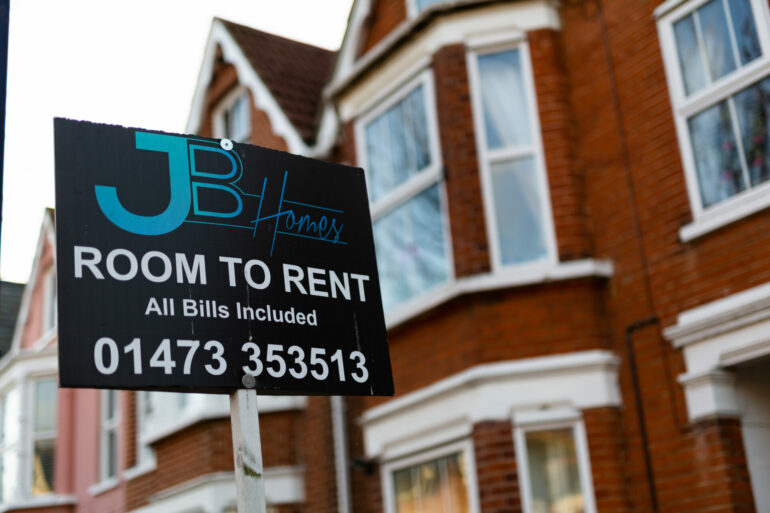The UK rental market cooled in 2025, posting the slowest annual rent rise in four years, according to Zoopla’s latest Rental Market Report.
Average rents were up just 2.4% compared to a year ago, less than half the rate seen 12 months earlier.
The average rent was £1,300 per month, up £30 over the year.
Letting agents received 24% fewer tenant enquiries than last year and rental supply increased by 19% over the year.
The average letting agent had 19 homes for rent, up from 14 in 2022.
Buy-to-let (BTL) loans for new purchases were up 60%.
Supply increased across all regions, especially in the South West and East Midlands, up 36% and 31% respectively.
Data also showed that London saw only a slight increase in rental supply.
Landlords buying with mortgages in the capital needed a much bigger deposit – £187,000 compared to £29,000 in the North East.
London also had the highest share of landlords still trying to sell, making up 31% of all homes for sale.
Over the past five years, average rents increased by nearly £80 per week, adding £4,100 a year for tenants.
Many renters were on below-average incomes and almost a third relied on housing benefit, which did not keep up with rent increases.
Rental growth slowed across most of the UK in 2025 due to affordability.
Growth ranged from less than 2% in London, Scotland and Yorkshire and Humberside, to 4.6% in the North East.
Rents fell in cities including Bristol and Leeds and overall growth was lower across all cities than in previous years.
Richard Donnell, executive director at Zoopla, said: “Rental market conditions are starting to normalise which will be very welcome news to renters.
“Lower migration and better mortgage availability for first time buyers are easing the scale of the competition for rented homes.
“There is also more choice for renters with more homes for rent as landlords start to buy homes once again and some owners who can’t find a buyer listing their homes for rent.”
Donnell added: “The affordability of renting remains a key constraint on the pace of future rental inflation and we expect rents to be three per cent higher by the end of the year at an average of £1,320 a month.”
Peter Maskell, managing director of Brock Taylor, said: “The South East rental market is rebalancing, with more homes available and rent growth easing, giving tenants more choice than we’ve seen in recent years.
“For landlords, success now hinges on being realistic with pricing and ensuring properties are both well-presented and well-located, as these are the homes that continue to attract strong demand even as the market steadies.”
Nathan Emerson, CEO of Propertymark, said: “A cooling in rental prices isn’t necessarily as detrimental for landlords, given that mortgage products have improved, providing those with buy-to-let tracker mortgages an easing in financial pressure, which can mitigate the impact or reduce rent rises.
“The stabilisation of rental levels will equally be welcomed by many tenants who have been struggling against the rise in inflation over the past few years, which exceeded what people have been historically used to.
“Not only have the increases in the cost of living pushed rent prices up, but they have also, in part, been caused by an imbalance of supply and demand.”



